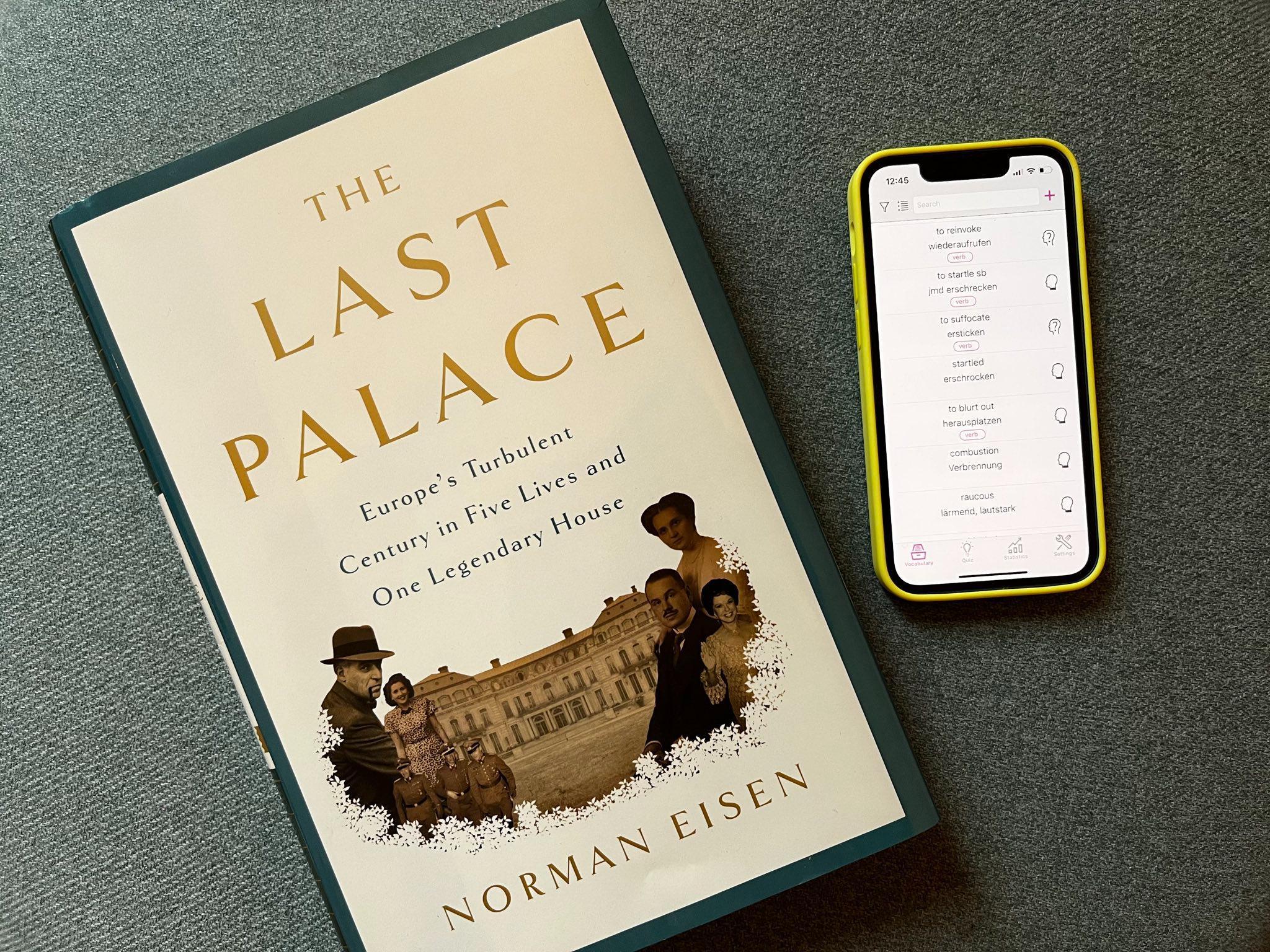Language learning journey: How Anna practises English, French and learns Finnish using Wokabulary
By Anna —
When you start using a new tool, it is helpful not only to know how it is used, but also to see some real life examples directly from practise. So, we want to share with you how we use Wokabulary and how it helps us to learn languages.
Improving my English vocabulary
I started learning English in school from 5th grade and only attended one language course after school. But of course, my language skills developed over the years by active use at university, on my jobs, with international friends or while watching English shows and movies.
Every now and then I tried to do something to actively push my progress, but didn’t succeed in building up a real routine to expand my vocabulary.
Last year, I established the routine to actively learn words I didn't know yet when reading English books. Usually, I read over words I do not understand, as they hardly hinder me from understanding the content.
But now, I note down every word I do not know or that I do not use actively directly to Wokabulary while reading. Initially, I let the translation blank. After reading I sit down, look up and write down the translation and then practise all newly added words. I find this method highly useful and was able to add several words to my active vocabulary.
It is, however, a different way of reading when you actively focus on each word you do not know instead of ignoring it. So, I do not do it with all the books I read, as it stops me from moving forward with the story.
Also, it is quite interesting to see how some books are much more challenging and have a more comprehensive vocabulary than others. For example, when I was reading the book The last Palace, written by the former United States Ambassador to the Czech Republic, I have really found many new words.

The book tells the story of the palace that Otto Petschek, a European Jewish industrialist, build in Prague in the 1920s and the history of this building, that has been used as a residence by the commander of the Nazi German army occupying Czechoslovakia during World War II and that is now the American Ambassadorial Residence. In this book, I found many words that I did not know on each page 😅 and could add many words to my Wokabulary.
Reactivating my rusty French
Long time ago, I could speak French quite well and had the opportunity to use it in France and with native speakers every now and then. Since then, I really lost the routine and just recently started to reactivate it again by watching French movies and reading French books. For books, I can really recommend the writings of Annie Ernaux, as she uses a very concrete and clear language and composition.
I don't do it as focused as with English, but I do add words I come across and I find useful to Wokabulary. I would also add words on everyday items I don’t remember anymore to Wokabulary and practise them. Where Wokabulary really helps me with French, is learning the correct pronunciation of words. I often have the word read out by Wokabulary in the quiz to get a hold of the nuances of French pronunciation.
Starting to learn Finnish
The language I just started learning this year is Finnish. After having learned languages from the Slavic, Germanic and Romanic language families I was eager to dive into a language that was not familiar to me at all. After I spent some time in Finland last year, I decided I would give Finnish a try.
My current learning workflow is as follows: I do some lessons in Duolingo and add new words I come across to Wokabulary. There, I rehearse the new words several times a week.
However, I reached a limit where I have a need for more context regarding grammar (especially verb forms etc.) to be able to actively learn the words and to make progress. So, I recently borrowed a Finnish course book from my local library, which has texts and grammar. I try to complete at least one lesson per week and add any new words to Wokabulary.
As Finnish is a language, that is not related to the languages I already know, it is tough to move forward when learning independently and without the possibility of speaking. Especially, as I do it just as a hobby. So, I signed up for an online Finnish language course at a Finnish university to push my progress. And there as well, I will use Wokabulary as my vocabulary book.
If you are thinking of starting to learn Finnish and don't know where to start – I put together some free language learning resources for learning Finnish.
Do you want to share how you use Wokabulary?
Do you want to help new users to get a better understanding of how Wokabulary can help them during their language learning journey? Share with us what helps you to learn languages and how you learn using Wokabulary!
If you want to share your routine, drop us a line at team@wokabulary.com and tell us something about you and your motivation to study languages.
- What languages do you learn? For how long?
- How are you studying? – On your own? In a school or university course?
- How does Wokabulary help you?
- Do you have any tips for effective language learning you want to share?